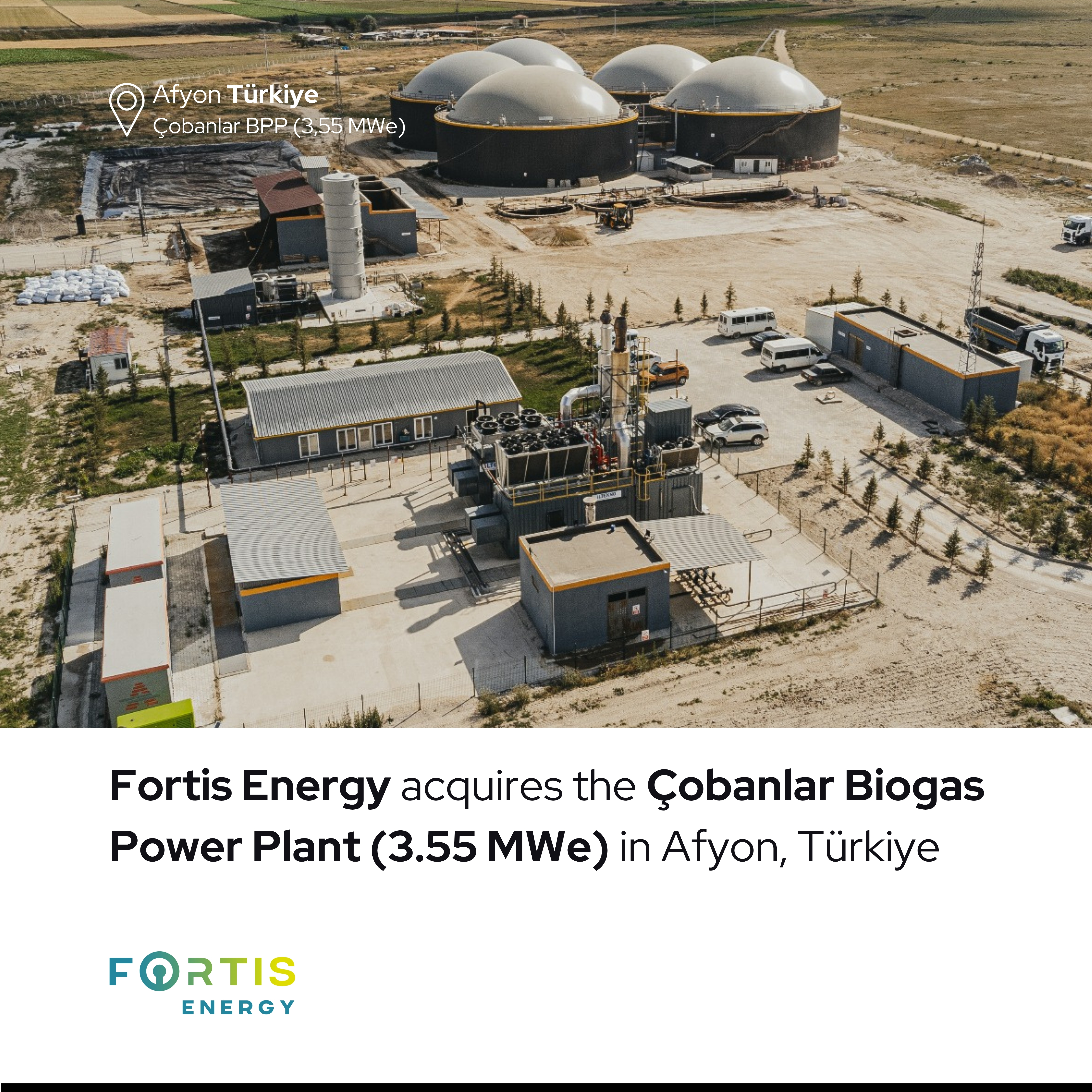
Fortis Energy has added the Çobanlar Biogas Power Plant (BPP) in Afyon, Türkiye, to its portfolio. The 3.55 MWe facility strengthens Fortis's renewable energy portfolio and underscores its commitment to sustainable development and the circular economy.
Çobanlar BPP, operational since 2021, is a significant contributor to the region's renewable energy landscape. Annually, the plant processes 100,000 tons of agricultural and animal solid and liquid waste through anaerobic fermentation, generating over 26 GWh of electricity. This process not only provides a renewable energy source but also offers a sustainable solution for waste management.
Beyond its power production, the Çobanlar facility plays a vital role in supporting local sustainable development. The organic fertilizer produced as a byproduct of the biogas process is made available for agricultural use, enriching the soil and reducing the reliance on synthetic fertilizers, thereby fostering a circular economy in the local community.
The addition of the Çobanlar BPP expands Fortis Energy's impressive operational portfolio to five biogas power plants, with four located in Türkiye and one in Serbia. This brings the Fortis' total installed biogas capacity to over 21 MWe. Collectively, these plants generate more than 190 GWh of renewable energy annually, contributing significantly to reducing greenhouse gas emissions and advancing the transition to a greener future.
Biogas is offering a reliable and sustainable energy source while directly addressing waste management challenges and supporting local agricultural communities. Biogas power generation is a critical component of a sustainable energy mix. By converting organic waste into electricity, biogas plants prevent the release of methane, a potent greenhouse gas, into the atmosphere. This process reduces odors and pathogens from animal manure, creates valuable organic fertilizer, and provides a dependable, baseload renewable energy source.